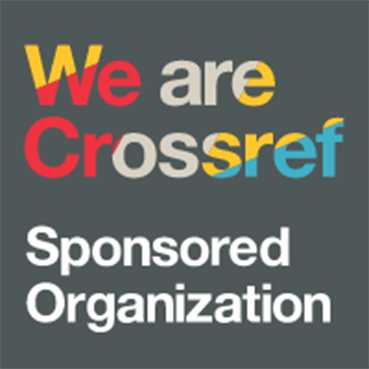Formulasi Kurikulum Pendidikan Islam: Prinsip, Nilai, dan Implementasi pada Lembaga Pendidikan
Main Article Content
Abdul Afwu Godly Prayitno
Mahmud Arif
Islamic education in Indonesia has developed through diverse institutional models, ranging from pesantren and madrasah to integrated Islamic schools. Each model presents a distinct approach to incorporating Qur’anic values into the curriculum. This article aims to analyse the foundations of ayat tarbawi (educational verses), the principles and values of Islamic education, and the implementation of curricula across different school models, with a particular emphasis on their relevance to contemporary educational needs. The study employs a qualitative approach based on a critical literature review, combining thematic exegesis of educational verses with conceptual analysis and institutional practices. The findings reveal that ayat tarbawi provide normative foundations such as tawḥīd (oneness of God), justice, compassion, lifelong learning, and freedom of thought. These principles are not merely theoretical but can be internalized through integrated curricula, moral habituation, and the adaptation of educational technology. At the implementation level, pesantren emphasize spiritual formation and scholarly tradition, madrasah promote the integration of religious and general sciences, while integrated Islamic schools adopt a modern model that combines the national curriculum with strengthened Islamic values. The synthesis underscores that Islamic education must bridge Qur’anic foundations with 21st-century demands, including digital literacy, critical thinking, and moral reinforcement. Hence, Islamic education is expected not only to preserve its spiritual identity but also to produce competitive, ethical, and globally relevant generations.
Afandi, A. U., Nurohman, M. A., & Kurniawan, W. (2024). Pendidikan Berbasis Al-Qur’an sebagai Fondasi Pembentukan Karakter Anak di TPQ Cahaya Ilmu Bekasi. ACTION: Jurnal Inovasi Penelitian Tindakan Kelas dan Sekolah, 4(2), 75–87. https://jurnalp4i.com/index.php/action/article/view/4220.
Aimar, G., & Azwar, B. (2024). Konsep Berpikir Kritis Paulo Freire dan Relevansinya Terhadap Keterampilan Berpikir Kritis dalam Kurikulum Merdeka Belajar Sekolah Dasar (Doctoral Dissertation, Institut Agama Islam Negeri Curup). https://e-theses.iaincurup.ac.id/6378/.
Al-Attas, S. M. N. (1991). The Concept of Education in Islam: A Framework for an Islamic Philosophy of Education. International Institute of Islamic Thought and Civilization (ISTAC).
Aulia, M. G., & Arif, M. (2025). Tafsir Tarbawi: Perspektif Pendidikan Islam dalam Memahami Ayat-Ayat Al Qur'an. QuranicEdu: Journal of Islamic Education, 5(1), 17-32. https://www.jurnalannur.ac.id/index.php/QuranicEdu/article/view/1289.
Azra, A. (2019). Pendidikan Islam: Tradisi dan Modernisasi di Tengah Tantangan Milenium III. Prenada Media.
Black, P., & Wiliam, D. (2018). Classroom Assessment and Pedagogy. Assessment in Education: Principles, Policy & Practice, 25(6), 551–575. https://doi.org/10.1080/0969594X.2018.1441807.
Bowen, G. A. (2009). Document Analysis as a Qualitative Research Method. Qualitative Research Journal, 9(2), 27–40. https://doi.org/10.3316/QRJ0902027.
Creswell, J. W., & Creswell, J. D. (2017). Research Design: Qualitative, Quantitative, and Mixed Methods Approaches. Sage Publications.
Dajani, B. A. S. (2015). The ideal education in Ibn Khaldun's Muqaddimah. Procedia-Social and Behavioral Sciences, 192, 308-312. https://doi.org/10.1016/j.sbspro.2015.06.044.
Dian, D., Fauziyyah, S., Arpiandi, Z., & Utari, N. S. (2024). Synergy between Philosophy of Education and Technology: Toward a More Innovative Approach to Learning. QALAMUNA: Jurnal Pendidikan, Sosial, Dan Agama, 16(2), 1315–1326. https://doi.org/10.37680/qalamuna.v16i2.4896.
Hermawansyah, H. (2019). Etika Guru sebagai Pendidikan yang Mendasar Bagi Siswa. Fitrah: Jurnal Studi Pendidikan, 10(2), 19-37. https://ejournal.stitbima.ac.id/index.php/fitrah/article/view/212.
Iskandar, W. (2019). Analisis Kebijakan Pendidikan dalam Perspektif Madrasah. Al-Madrasah: Jurnal Ilmiah Pendidikan Madrasah Ibtidaiyah, 4(1), 1-22. http://dx.doi.org/10.35931/am.v4i1.109.
Krippendorff, K. (2019). Content Analysis: An Introduction to Its Methodology (4th ed.). Sage Publications.
Maulana, I. (2024). Islamic Education Curriculum Based on the Quran: Aligning Education with Societal Needs. IHTIROM: Jurnal Manajemen Pendidikan Islam, 3(2), 501–518. https://doi.org/10.70412/itr.v3i2.113.
Nurjannah, S., Rizkiyah, M., & Sumedi. (2024). Integrating the Values of the Quran in Education to Form a Generation of Character. Sunan Kalijaga International Journal on Islamic Educational Research (SKIJIER), 6(1), 45–60. https://ejournal.uin-suka.ac.id/tarbiyah/SKIJIER/article/view/8618.
Parnawi, A., & Ridho, D. A. A. (2023). Peran Guru Pendidikan Agama Islam dalam Menanamkan Nilai-Nilai Moral dan Etika Siswa di SMK Negeri 4 Batam. Berajah Journal, 3(1), 167-178. https://doi.org/10.47353/bj.v3i1.209.
Qomar, M. (2002). Pesantren: Dari Transformasi Metodologi Menuju Demokratisasi Institusi. Erlangga.
Rohmah, N. & Salabi, A. S. (2025). Sejarah Pendidikan Islam. Jakad Media Publishing.
Rojii, M., Istikomah, I., Aulina, C. N., & Fauji, I. (2019). Desain Kurikulum Sekolah Islam Terpadu (Studi Kasus di SMPIT Insan Kamil Sidoarjo). Al-Tanzim: Jurnal Manajemen Pendidikan Islam, 3(2), 49-60. https://doi.org/10.33650/al-tanzim.v3i2.667.
Sabarudin, M., Al Ayyubi, I. I., Rohmatulloh, R., & Indriyani, S. (2023). The Effect of Contextual Teaching and Learning Models on Al-Quran and Hadith Subjects. At-Tadzkir: Islamic Education Journal, 2(2), 129–142. https://at-tadzkir.pdtii.org/index.php/tadzkir/article/view/43.
Shohib, M., Al Masithoh, S., & Al-Ghifari, F. H. (2024). Ukhuwah Islamiyah dan Interaksi Harmonis Antarumat Beragama di Indonesia: Kajian Tafsir Ayat-Ayat Ukhuwah dalam Al-Qur’an. Al Furqan: Jurnal Ilmu Al Quran Dan Tafsir, 7(2), 493-512. https://doi.org/10.58518/alfurqon.v7i2.2934.
Sitika, A. J., Adela, Z. A., Ismail, E. N., & Kartika, T. A. (2024). Pendidikan Islam Modern: Kurikulum PAI Berbasis Al-Qur’an, Sunnah, dan Budaya Sesuai Kebutuhan Masyarakat. Hidayah: Cendekia Pendidikan Islam dan Hukum Syariah, 3(1), 21–35. https://ejournal.aripafi.or.id/index.php/Hidayah/article/view/926.
Snyder, H. (2019). Literature review as a research methodology: An Overview and Guidelines. Journal of Business Research, 104, 333–339. https://doi.org/10.1016/j.jbusres.2019.07.039.
Suprayogo, I. (2004). Pendidikan Berparadigma Al-Qur'an: Pergulatan Membangun Tradisi dan Aksi Pendidikan Islam. UIN-Maliki Press.
Syahid, N. (2024). Konsep Pendidikan Holistik dalam Filsafat Pendidikan Islam: Studi atas Pengembangan Konsep Pendidikan yang Berbasis pada Akal, Hati, dan Fisik. MODELING: Jurnal Program Studi PGMI, 11(1), 1186-1196. https://jurnal.stitnualhikmah.ac.id/index.php/modeling/article/view/253.








